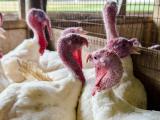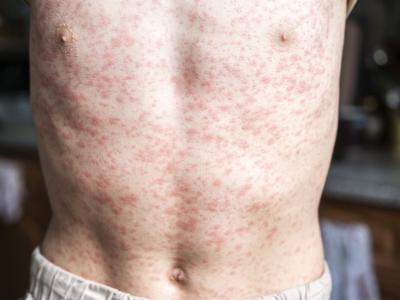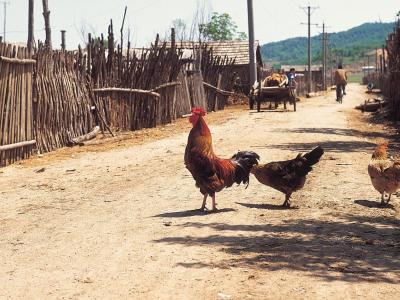Feb 19, 2010
FBI closes anthrax investigation, releases documents
The FBI today formally closed the 2001 anthrax case against scientist Bruce Ivins, USA Today reported. The FBI and the Department of Justice also released about 2,700 pages of documents related to the 7-year investigation that USA Today and other news organizations asked for in a freedom-of-information request. The anthrax-laced letters, sent in the aftermath of the Sep 11 terrorist attacks, killed five people and sickened 17 others. Ivins committed suicide in July 2008, shortly before the FBI announced that he was the suspect and likely acted alone. Members of Congress have asked the National Academy of Sciences to formally review the scientific methods the FBI used to trace the anthrax strain found in the mailings and samples from Ivins' lab. The FBI said in a press release today that the "Amerithrax" probe was the largest investigation into a bioweapons attack in US history. Officials said about 25 to 30
investigators from the FBI and other federal agencies spent hundreds of thousands of hours on the case, conducting more than 10,000 witness interviews and collecting 6,000 potential evidence items
Feb 19 USA Today story
Department of Justice Amerithrax investigation summary
Department of Justice Amerithrax investigation documents
Feb 19 FBI press release
WHO recommends developing new H9N2 vaccine virus
In a semiannual update on avian influenza activity, the World Health Organization (WHO) has recommended that health authorities begin developing a candidate vaccine virus for the most recently recovered isolates of avian flu strain H9N2. That subtype, which is endemic in poultry in parts of Asia and the Middle East, caused two unrelated human infections in Hong Kong in late 2009. The patients, who were mildly ill and recovered, were a 47-year-old woman and a 35-month-old child who were not related; both had traveled to mainland China. Isolates from the patients were not completely reactive to ferret antiserum to the existing H9N2 candidate vaccine virus, which was isolated in 1999. That existing vaccine and one made from a 1997 isolate have been studied in eight clinical trials testing different formulations and dosages. Three were conducted by the US National Institute of Allergy and Infectious Diseases, including one using an
adjuvanted vaccine purchased from Novartis Vaccines and Diagnostics, formerly Chiron Corp., that returned good results in 2006. The WHO also reported that strains of H5N1 avian flu belonging to at least five different viral clades have caused poultry outbreaks since September 2009, but the agency did not recommend that any additional H5N1 candidate vaccine viruses be developed.
Feb 17 WHO "Antigenic and genetic characteristics" summary
FDA solicits farmer, packer comments on produce safety
The Food and Drug Administration (FDA) will announce Feb 23 that it is opening a new effort to solicit comments from growers and packers of fresh produce, particularly leafy greens. The comment-collecting, or docket, is part of the FDA's efforts to develop safety standards for leafy greens in the wake of several major foodborne illness outbreaks. It is running in parallel with an effort in the Agricultural Marketing Service of the US Department of Agriculture (USDA) to also develop marketing agreements for leafy greens. The FDA said in a pre-publication notice in the Federal Register that comment-collecting aims to respect the diversity of the industry while garnering front-line testimony on contamination problems.
Feb 18 Federal Register notice


















